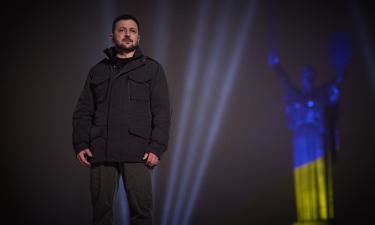EU vs US: internet controlled or self-independent?
The European Union insisted Friday that governments and the private sector must share the responsibility of policing the Internet.
The United States wants to remain the Internet's ultimate authority, rejecting calls in a United Nations meeting in Geneva for a U.N. body to take over.
EU spokesman Martin Selmayr rejected American claims that the EU had changed direction.
"We are looking for a new cooperation model, a model that allows Internet governance and the laying down of public policy principles in coordination by all countries which are interested in the governance of the Internet because the Internet is a global resource," he said. "The EU ... is very firm on this position."
Negotiators said there was a growing sense that a compromise had to be reached and that no single country ought to be the ultimate authority over such a vital part of the global economy.
A top U.S. official said the U.S. was "deeply disappointed" with an EU proposal made Wednesday, which appeared to support wresting control of domain names from the U.S.-based Internet Corporation for Assigned Names and Numbers, or ICANN, and placing it with an intergovernmental group, possibly under the United Nations.
"We will not agree to the U.N. taking over the management of the Internet," said Ambassador David Gross, the U.S. coordinator for international communications and information policy at the State Department. "Some countries want that. We think that's unacceptable."
But Selmayr insisted the EU and U.S. were not that far apart, although tensions have scuppered any chance of agreement in Geneva this week.
"That doesn't mean they're won't be a result in the end," he said. "We are very close with the United States on a number of important principles. It is not for governments to control the Internet. We need more private sector involvement and the current working methods of ICANN are very efficient."
The stalemate over who should serve as the principal traffic police for Internet routing and addressing may derail the November summit, which aims to ensure a fair sharing of the Internet for the benefit of the whole world.
Internet governance historically has been the role of the U.S., which created the original system and funded much of its early development.
While this satisfies some, developing countries are upset that Western countries that got onto the Internet first used up most available addresses required for computers to connect, leaving poor nations to share a limited supply.
T.E.
Subscribe to Pravda.Ru Telegram channel, Facebook, RSS!





